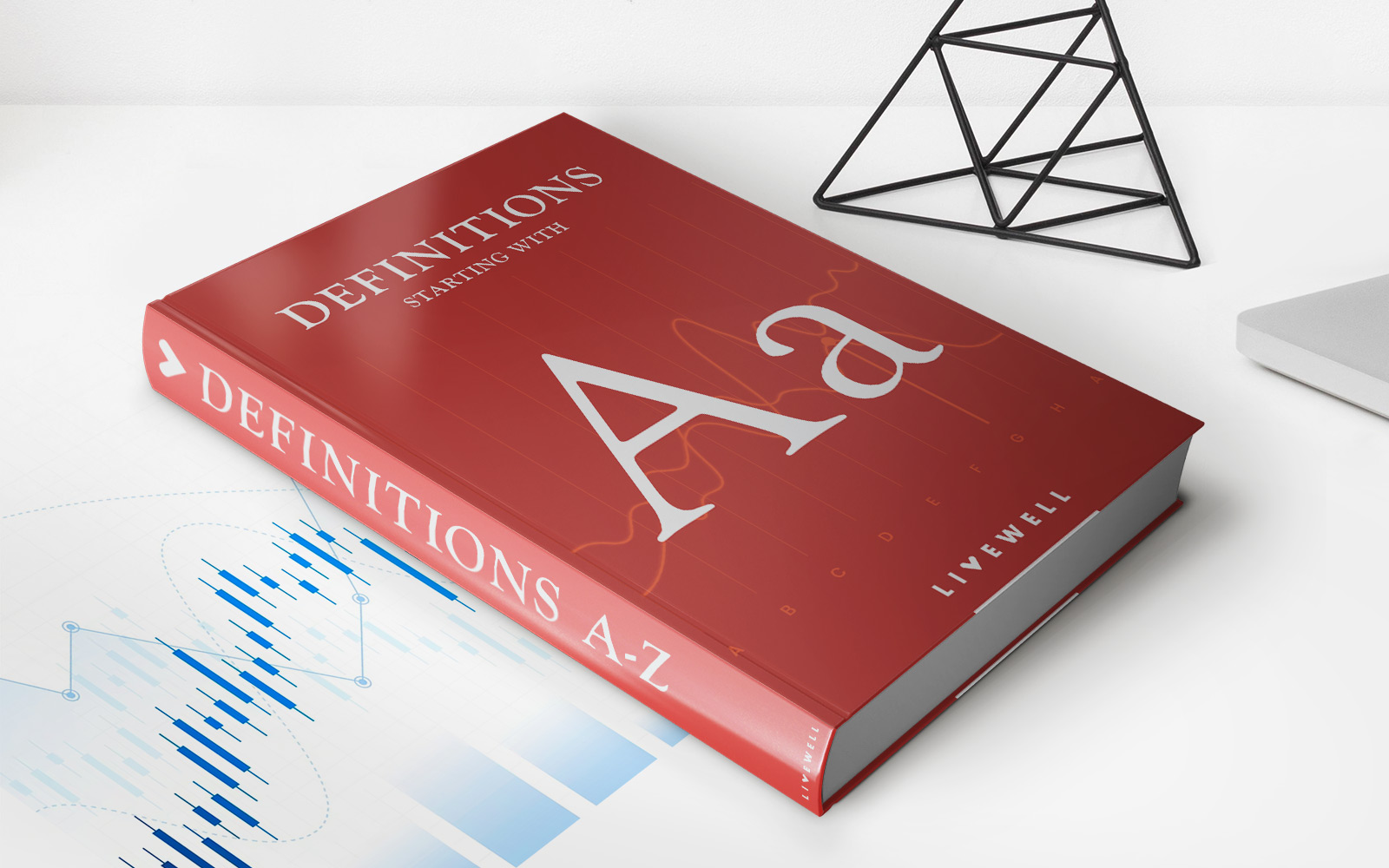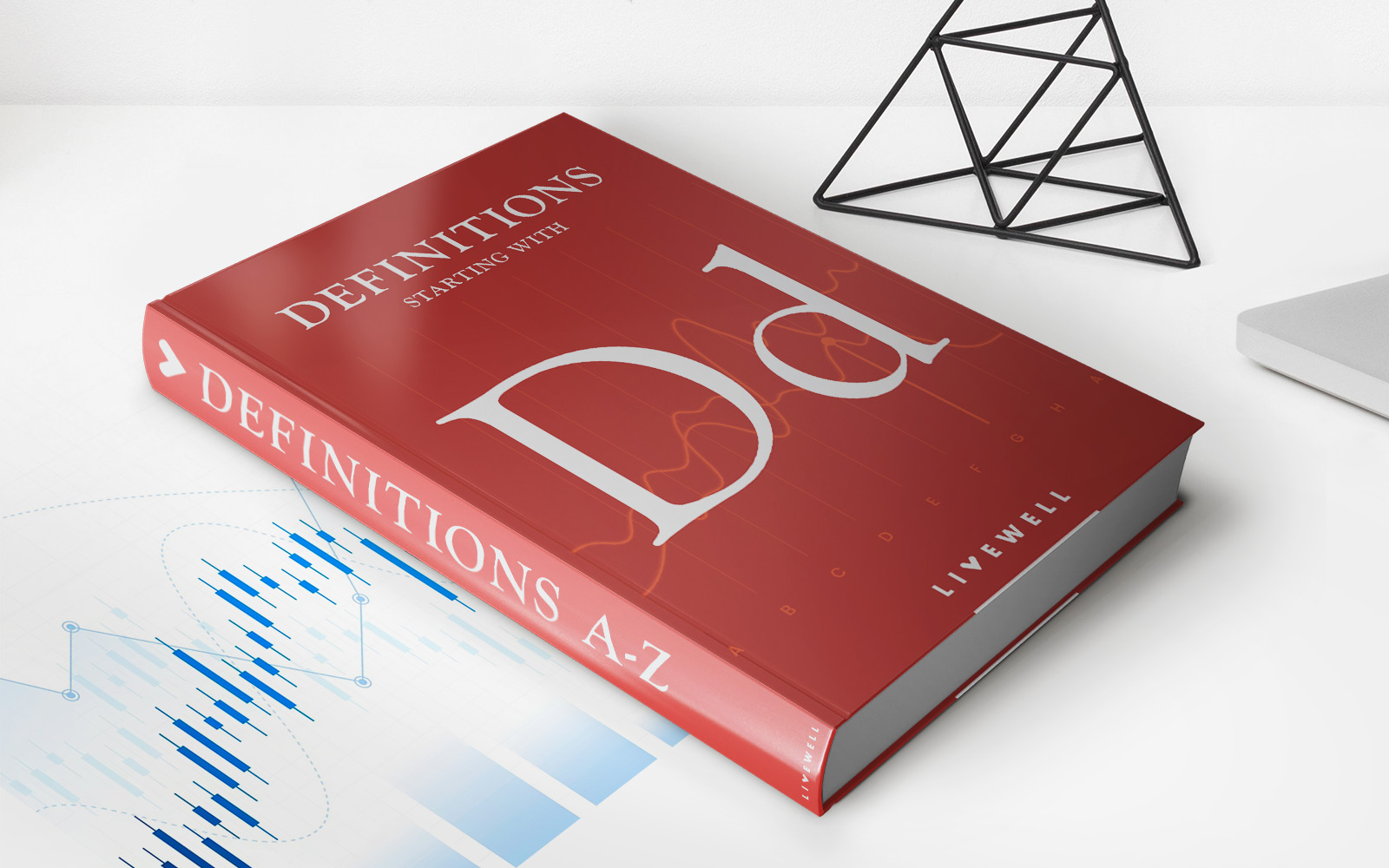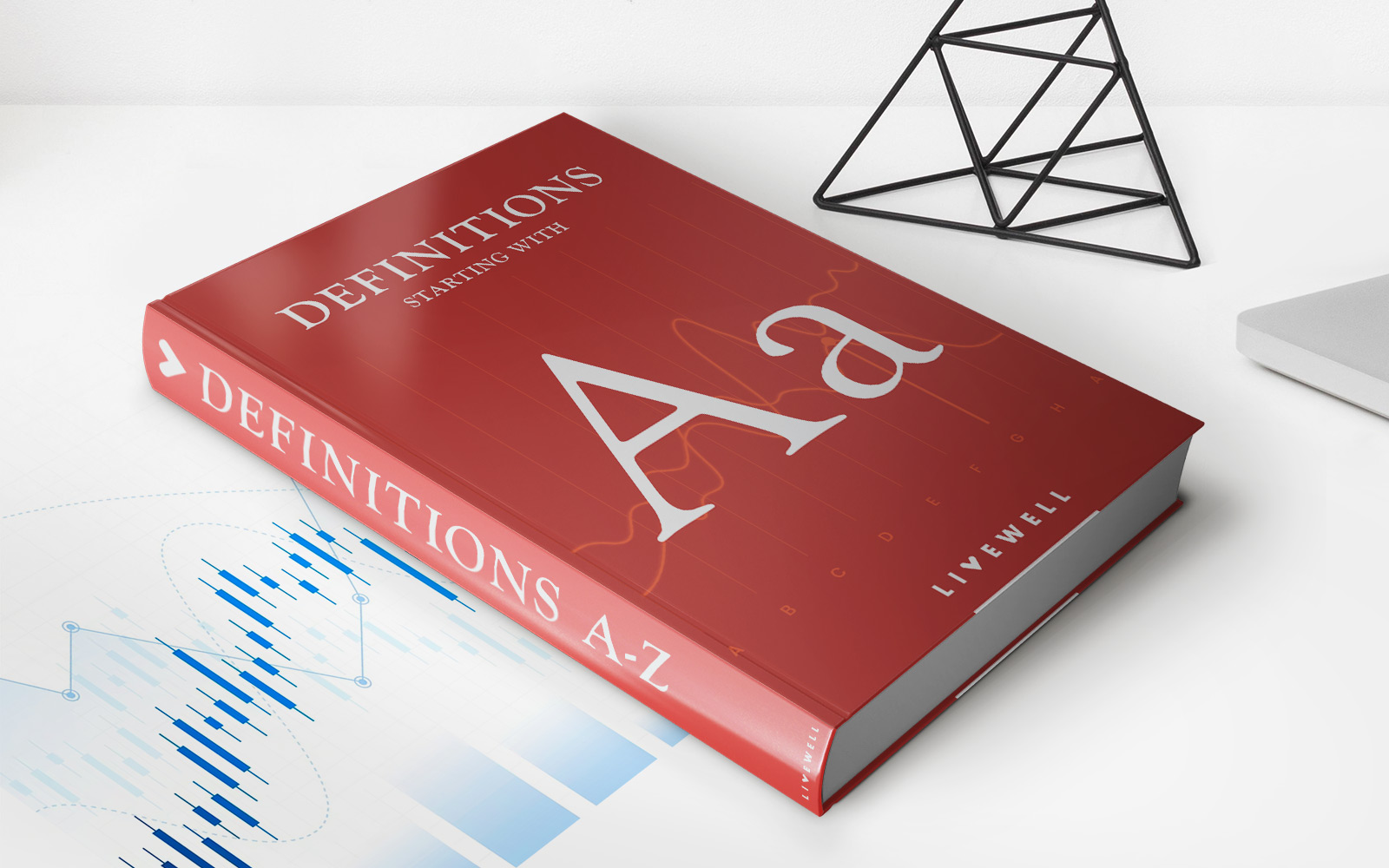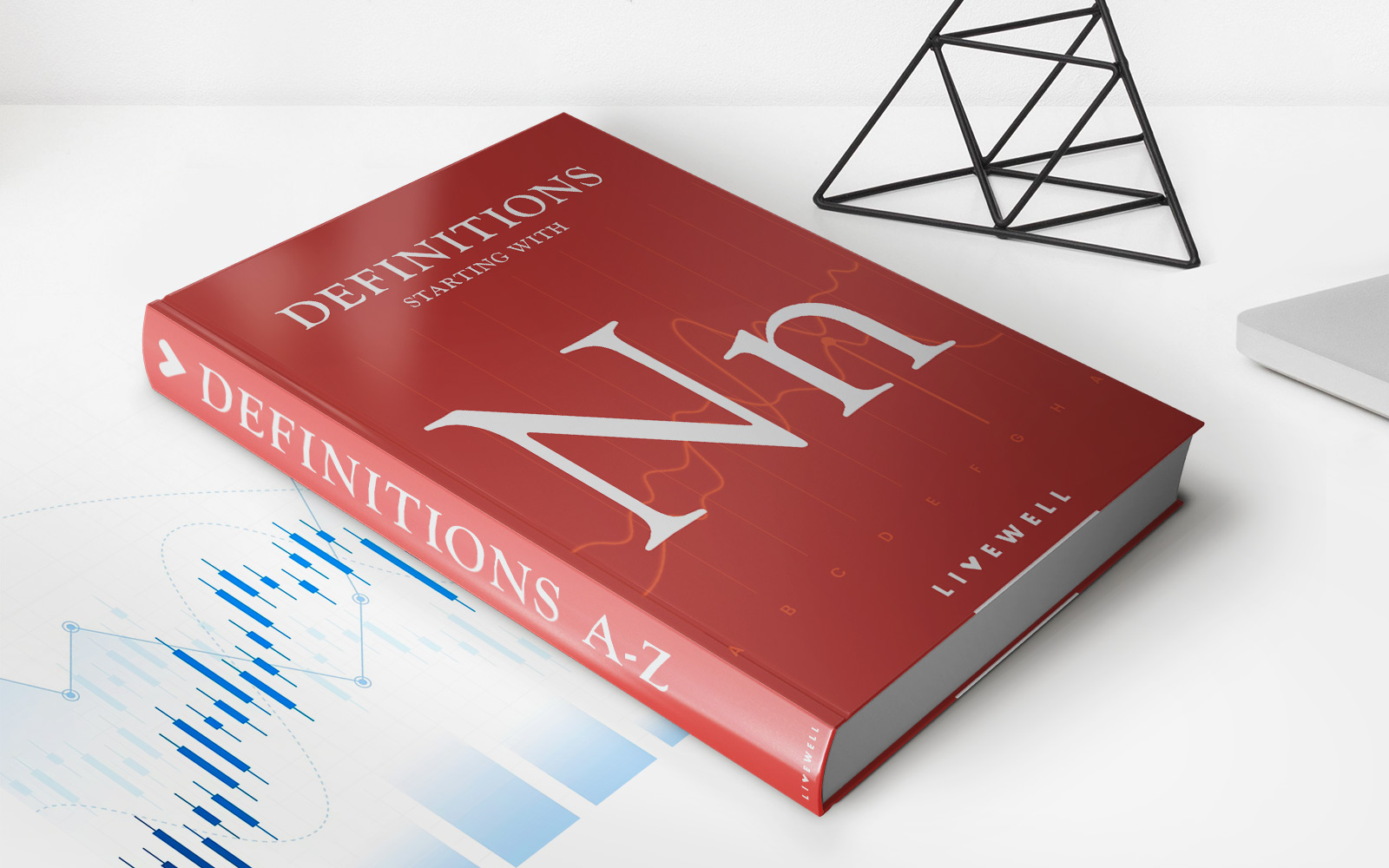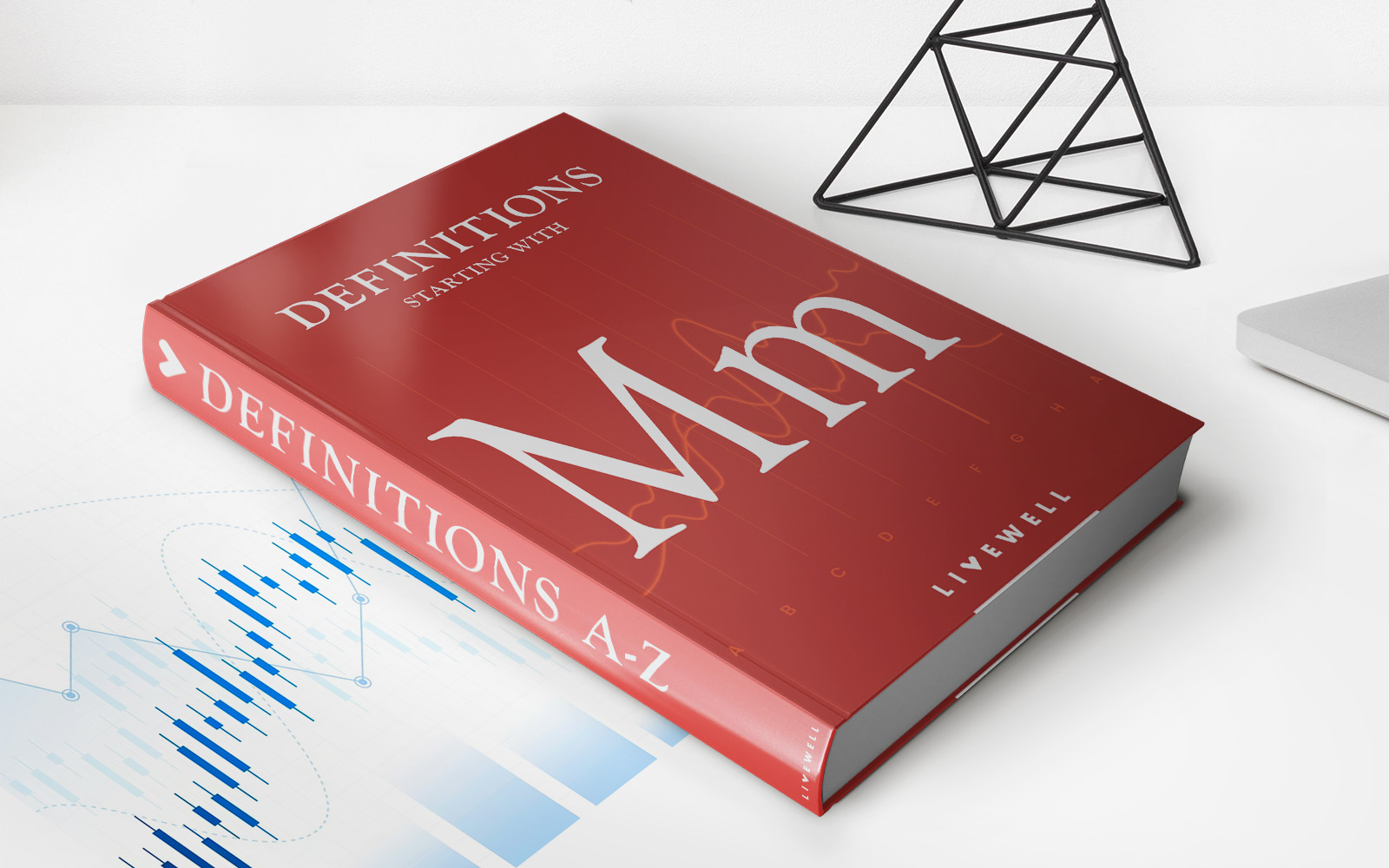

Finance
What Is Annuity Pension
Published: November 27, 2023
Learn all about annuity pensions and how they can help you plan for your financial future. Find out how this financial product can provide a reliable and steady income stream during retirement.
(Many of the links in this article redirect to a specific reviewed product. Your purchase of these products through affiliate links helps to generate commission for LiveWell, at no extra cost. Learn more)
Table of Contents
Introduction
Annuity pensions are an essential component of retirement planning. They provide a steady stream of income during retirement, serving as a valuable financial tool for individuals looking to secure their financial future. But what exactly is an annuity pension?
Annuity pensions are financial contracts between an individual and an insurance company. The individual makes regular payments, often over a number of years, in exchange for future income. This income is typically received in the form of regular payments throughout retirement.
Annuities offer a unique advantage in that they provide a guaranteed income for a specified period, or even for life, ensuring a stable and predictable cash flow. This can be especially appealing for those who are concerned about outliving their savings or who want to supplement their existing retirement income.
Understanding how annuity pensions work and the various options available is crucial in making informed financial decisions. By exploring the different types of annuities, payout options, and considering the pros and cons, individuals can tailor their annuity pension to meet their specific needs and goals.
In this article, we will delve into the world of annuity pensions, covering the different types available, the pros and cons of purchasing an annuity, key factors to consider before making a decision, and even provide some insights into tax considerations surrounding annuity pensions.
Whether you are just beginning to plan for retirement or are considering purchasing an annuity pension, this comprehensive guide will equip you with the necessary knowledge to make informed choices and ensure a comfortable financial future.
Understanding Annuities
Annuities are financial products that are designed to provide a regular income stream during retirement. They are typically purchased from insurance companies and can be considered as a form of retirement savings account. Essentially, when you purchase an annuity, you are exchanging a lump sum of money for a series of payments over a specified period of time.
One key aspect to understand about annuities is the concept of the “annuitization phase.” This is when you begin to receive the regular payments from the annuity, which is usually during retirement. The payments can be structured to last for a certain number of years or for the remainder of your life, providing you with a steady income stream.
There are different types of annuities, each with its own features and benefits. The most common types include:
- Fixed Annuities: Fixed annuities offer a guaranteed rate of return over a specified period of time. This type of annuity provides predictability and stability, as the rate of return and payments remain consistent throughout the term of the annuity.
- Variable Annuities: Variable annuities allow you to invest your annuity funds into different investment options, such as stocks and bonds. The value of the annuity and the payments you receive can fluctuate based on the performance of the underlying investments.
- Indexed Annuities: Indexed annuities are tied to the performance of a market index, such as the S&P 500. They offer the potential for higher returns compared to fixed annuities, while still providing a level of downside protection.
It’s important to carefully evaluate the different types of annuities and choose the one that aligns with your risk tolerance, investment objectives, and financial goals.
Another notable aspect of annuities is the surrender period. During the surrender period, which typically lasts several years after purchasing the annuity, there may be fees or penalties for withdrawing funds or surrendering the annuity early. Understanding the terms and conditions of the surrender period is crucial to avoid unnecessary fees.
Additionally, it’s important to note that annuities are not insured by the FDIC or any other government agency, so it’s essential to choose a reputable insurance company when purchasing an annuity.
In the next section, we will explore the different payout options available with annuity pensions and how they can impact your retirement income. Understanding these options is crucial in tailoring your annuity to meet your specific financial needs.
Types of Annuities
When it comes to annuities, there are several different types to consider. Each type has its own unique features and benefits, allowing individuals to choose the option that aligns with their financial goals and preferences. Let’s explore the most common types of annuities:
- Immediate Annuities: As the name suggests, immediate annuities provide income right away. With an immediate annuity, you make a lump sum payment to an insurance company, and in return, you start receiving regular payments immediately. These payments can be for a fixed period or for the rest of your life, depending on your chosen payout option.
- Deferred Annuities: Deferred annuities are designed to provide income in the future. With a deferred annuity, you make regular contributions or a lump sum payment to the annuity over a period of time, known as the accumulation phase. During this phase, your money grows on a tax-deferred basis, meaning you won’t pay taxes on the earnings until you start receiving payments. The annuity enters the annuitization phase at a pre-determined date, such as retirement, and you start receiving regular payments.
- Fixed Annuities: Fixed annuities offer a guaranteed rate of return on your investment. The insurance company agrees to pay you a fixed interest rate for a specified period of time. These annuities provide stability and predictability, making them a popular choice for individuals who prefer a consistent income stream.
- Variable Annuities: Variable annuities allow you to invest your annuity funds in different investment options, such as stocks, bonds, and mutual funds. The rate of return and the payments you receive from a variable annuity are not fixed and depend on the performance of the underlying investments. This type of annuity offers the potential for higher returns but also comes with more risk.
- Indexed Annuities: Indexed annuities are linked to the performance of a specific financial index, such as the S&P 500. These annuities offer the possibility of higher returns based on the performance of the index, while also providing downside protection. Indexed annuities typically have a minimum guaranteed interest rate, ensuring that you won’t lose money even if the index performs poorly.
It’s important to carefully consider your financial goals, risk tolerance, and overall retirement strategy when choosing the type of annuity that is right for you. Consulting with a financial advisor can be beneficial in navigating the various options and selecting the annuity that aligns with your individual circumstances.
Next, let’s explore the different payout options available with annuity pensions and how they can impact your retirement income.
Annuity Payout Options
Once the annuity enters the annuitization phase, you have several payout options to choose from. The payout option you select will determine how and when you receive your annuity payments. Here are some common annuity payout options:
- Life Only: With the life-only option, you receive guaranteed payments for the remainder of your life. This option provides the highest payout amounts but does not offer any survivor benefits. If you pass away before receiving the full value of the annuity, the remaining balance typically remains with the insurance company.
- Life with Period Certain: This option provides payments for your lifetime, just like the life-only option. However, it also includes a minimum period during which payments are guaranteed, such as 10 or 20 years. If you pass away before the guaranteed period ends, your beneficiary will continue receiving the payments for the remainder of the guaranteed period.
- Joint and Survivor: With this option, you can choose to receive payments for the rest of your life, with a guarantee that your spouse or another chosen beneficiary will continue receiving payments after your death. This provides financial security for both you and your loved ones, but the initial payout amount will typically be lower than with the life-only option.
- Period Certain: This option allows you to receive guaranteed payments for a specific period of time, regardless of whether you are alive or not. For example, you may choose a 10-year period certain. If you pass away before the 10-year period ends, your beneficiary will continue receiving payments for the remaining years.
- Lump Sum: Instead of receiving regular payments, you can choose to withdraw the entire value of your annuity as a lump sum. However, it’s important to consider the tax implications and potential penalties associated with taking a large lump sum withdrawal.
It’s crucial to carefully evaluate each payout option and consider your personal circumstances, financial goals, and retirement needs. Some factors to consider include your life expectancy, the financial well-being of your spouse or beneficiaries, and your willingness to accept potential fluctuations in payments.
Keep in mind that once you select a payout option, it is typically not reversible. Therefore, taking the time to understand the implications of each option and seeking advice from a financial professional can help ensure you make an informed decision that aligns with your retirement plans.
In the next section, we will explore the pros and cons of annuity pensions, helping you weigh the benefits and potential drawbacks before making a decision.
Pros and Cons of Annuity Pensions
Annuity pensions offer unique advantages and disadvantages that individuals should consider before deciding to purchase one. Let’s explore the pros and cons of annuity pensions:
Pros of Annuity Pensions:
- Guaranteed Income: Annuities provide a reliable and predictable stream of income during retirement. Whether you opt for a fixed annuity or a life-only payout option, you can count on regular payments to cover your living expenses.
- Lifetime Income: With certain annuity options, such as a life-only or joint and survivor payout, you can ensure a guaranteed income for the rest of your life or the life of your spouse. This can be particularly valuable if you are concerned about outliving your savings.
- Tax Advantages: Annuities offer tax-deferred growth, meaning you won’t pay taxes on the earnings until you start receiving payments. This can help you optimize your retirement income and potentially reduce your tax liability.
- Flexibility: Annuities provide flexibility in terms of payout options, allowing you to choose the payment structure that best suits your needs. Whether you prefer a lump sum, fixed period payments, or a lifetime income, annuities offer customizable solutions.
- Inflation Protection: Some annuity options, such as indexed annuities, provide inherent inflation protection. As their payout is linked to the performance of market indices, they have the potential to adjust your income to keep pace with inflation, ensuring your purchasing power is maintained.
Cons of Annuity Pensions:
- Lack of Liquidity: Annuities are designed to be long-term investments, and accessing the funds before the annuitization phase can often result in significant penalties or surrender charges. This lack of liquidity may limit your ability to access funds in case of emergencies.
- Opaque Fees and Expenses: Annuities often come with various fees and expenses, including administrative fees, mortality and expense charges, and investment management fees for variable annuities. It’s crucial to thoroughly understand and compare these costs before committing to an annuity.
- Loss of Principal: With variable annuities, there is a risk of losing your initial investment if the underlying investments perform poorly. While fixed annuities offer a guaranteed return, the potential for investment growth is limited compared to other investment options.
- Inflexibility: Once you select a payout option and enter the annuitization phase, modifying or canceling the annuity is generally not possible. This lack of flexibility may limit your ability to adapt to changing financial circumstances or investment opportunities.
- Insurance Company Reliability: Annuities are backed by insurance companies, so the financial stability and reputation of the insurer are important considerations. It’s crucial to select a reputable and financially strong company to minimize the risk of default.
Understanding these pros and cons is essential in determining whether annuity pensions align with your retirement goals and financial situation. By carefully evaluating the advantages and potential drawbacks, you can make an informed decision that suits your individual needs.
In the next section, we will discuss important factors to consider before purchasing an annuity, helping you navigate the process with confidence.
Factors to Consider before Purchasing an Annuity
Purchasing an annuity is a significant financial decision that requires careful consideration. Before committing to an annuity, it’s important to evaluate various factors to ensure it aligns with your retirement goals and financial situation. Let’s explore the key factors to consider:
Financial Needs and Goals:
Start by assessing your financial needs and goals for retirement. Determine how an annuity fits into your overall retirement strategy and whether it can provide the necessary income to support your desired lifestyle. Consider factors such as your anticipated retirement expenses, other sources of income, and any potential financial obligations.
Risk Tolerance:
Take into account your risk tolerance when choosing the type of annuity. If you prefer a stable and predictable income stream, a fixed annuity may be more suitable. If you are willing to take on more investment risk with the potential for higher returns, a variable or indexed annuity may be worth considering. Understand the risks associated with each annuity type and choose accordingly.
Time Horizon:
Consider your time horizon for retirement. If retirement is still many years away, a deferred annuity may be a viable option, as it allows your investment to grow over time. If you are on the brink of retirement or already retired, an immediate annuity may be more appropriate to start receiving regular payments immediately.
Costs and Fees:
Be aware of the costs and fees associated with the annuity. These may include administrative fees, surrender charges, and investment management fees. Make sure you understand the fee structure and compare fees across different annuity providers to ensure you are getting a competitive offering.
Insurance Company Reputation:
Research the reputation and financial stability of the insurance company offering the annuity. Check their ratings with independent rating agencies to assess their financial strength and ability to fulfill their obligations. A reputable and stable insurance company will provide peace of mind that your annuity payments are secure.
Tax Considerations:
Understand the tax implications of purchasing an annuity. While annuities offer tax-deferred growth, meaning you won’t pay taxes on the earnings until you start receiving payments, withdrawals or surrendering the annuity may have tax consequences. Consult with a tax advisor to assess the potential tax implications before making a decision.
Considering these factors will help you make an informed decision and choose an annuity that best suits your specific needs and circumstances. It’s also advisable to consult with a financial advisor who can provide personalized guidance based on your individual situation.
In the next section, we will explore the tax considerations surrounding annuity pensions, helping you navigate the complex tax landscape.
Annuity Pension Tax Considerations
When it comes to annuity pensions, there are several tax considerations to keep in mind. Understanding the tax implications can help you make informed decisions and maximize the benefits of your annuity. Let’s explore the key tax considerations surrounding annuity pensions:
Tax-Deferred Growth:
One of the main advantages of annuities is their ability to grow on a tax-deferred basis. This means that you won’t pay taxes on the earnings and investment gains until you start receiving payments. This tax-deferred growth allows your investment to potentially compound over time, resulting in a higher accumulated value.
Taxation of Annuity Payments:
When you begin receiving annuity payments, they are generally treated as taxable income. The portion of the payment that represents the return of your original investment (the principal) is typically not subject to income tax. However, the portion that represents interest or investment gains is considered taxable income.
The taxation of annuity payments depends on whether you made the annuity purchase with pre-tax (qualified) or after-tax (non-qualified) funds. If you purchased the annuity with pre-tax funds, such as through a traditional IRA or a qualified retirement plan, the entire amount of the annuity payment is subject to income tax. If you used after-tax funds to purchase the annuity, a portion of each payment is considered a return of your original investment and is tax-free.
Early Withdrawal Penalties:
Withdrawing funds from an annuity before reaching the age of 59 ½ may result in early withdrawal penalties. In addition to any applicable income tax, the IRS imposes a 10% early withdrawal penalty on the taxable portion of the distribution. However, there may be exceptions to this penalty in certain circumstances, such as disability or death.
Required Minimum Distributions (RMDs):
If you own an annuity within a qualified retirement account, such as a traditional IRA or a 401(k), you will need to take required minimum distributions (RMDs) starting at age 72 (or 70 ½ if you reached that age before January 1, 2020). These distributions are subject to income tax and are calculated based on your life expectancy and the account balance each year.
Stretch Options and Inherited Annuities:
If you inherit an annuity, different tax rules may apply. The taxation of inherited annuities depends on whether the original owner had already started receiving payments or not. In some cases, beneficiaries may have the option to “stretch” the distributions over their lifetime, potentially minimizing the tax burden.
It’s crucial to consult with a tax advisor or financial professional who can provide personalized guidance based on your specific situation. They can help you navigate the complex tax landscape and make informed decisions that align with your financial goals.
In the next section, we will discuss how to choose the right annuity provider, ensuring your investment is in good hands.
How to Choose the Right Annuity Provider
Choosing the right annuity provider is a crucial step in ensuring the security and reliability of your annuity investment. With numerous insurance companies offering annuities, it’s important to consider several factors before making a decision. Here are some key considerations to help you choose the right annuity provider:
Financial Strength and Stability:
Look for an annuity provider that has a strong financial track record and a high credit rating. Research the insurer’s financial strength and stability by checking their ratings from independent rating agencies such as AM Best, Standard & Poor’s, or Moody’s. A financially stable provider is more likely to fulfill future annuity payments.
Reputation and Customer Service:
Consider the reputation of the annuity provider in terms of customer satisfaction and quality of service. Look for customer reviews and ratings to gauge the experiences of other annuity holders. A reputable provider with excellent customer service can provide peace of mind and a seamless administrative experience.
Product Offerings:
Evaluate the annuity products offered by the provider. Consider factors such as the types of annuities available, the payout options, and any additional features or riders offered. Look for flexibility in product offerings to cater to your specific retirement needs and financial goals.
Competitive Rates and Fees:
Compare the rates and fees offered by different annuity providers. Look for competitive interest rates on fixed annuities or attractive investment options for variable annuities. Additionally, consider the fees associated with the annuity, including administrative fees, mortality and expense charges, and investment management fees. Choose a provider that offers transparent and reasonable fee structures.
Longevity and Experience:
Consider the longevity and experience of the annuity provider in the industry. Providers with a long history of operation and expertise in managing annuity products may be more reliable and knowledgeable in addressing your retirement needs. Experienced providers often have a better understanding of market trends and can offer a wider range of solutions.
Regulatory Compliance:
Ensure that the annuity provider is properly licensed and compliant with regulatory requirements. Check whether they are registered with the appropriate regulatory bodies and adhere to industry standards. This helps instill confidence in the provider’s commitment to ethical practices and consumer protection.
It’s important to carefully evaluate these factors and conduct thorough research before selecting an annuity provider. Additionally, consult with a financial advisor who can provide guidance and help you navigate the various options available.
By choosing the right annuity provider, you can enhance the security and potential benefits of your annuity investment, leading to a more secure and comfortable retirement.
In the next section, we will address frequently asked questions about annuity pensions, providing further clarity on this financial product.
Frequently Asked Questions about Annuity Pensions
As annuity pensions can be complex financial products, it’s common for individuals to have questions. In this section, we will address some frequently asked questions to provide further clarity:
1. Are annuity pensions a good option for retirement planning?
Annuity pensions can be a good option for retirement planning, especially if you value a guaranteed income stream and want to supplement your other retirement savings. They provide financial security and steady payments during retirement, which can help cover living expenses and ensure peace of mind.
2. What is the ideal age to start an annuity pension?
The ideal age to start an annuity pension varies depending on individual circumstances. Generally, annuities are considered closer to retirement age, typically in your 50s or early 60s. However, the right age to start an annuity depends on factors such as your retirement goals, risk tolerance, and other sources of income.
3. Can I access my annuity funds before the annuitization phase?
Accessing the funds in an annuity before the annuitization phase, which is typically the retirement age, may result in penalties and surrender charges. Annuities are designed to be long-term investments, so it’s important to consider the lack of liquidity before committing to an annuity.
4. What happens to the remaining balance of an annuity if I pass away?
What happens to the remaining balance of an annuity after the death of the annuity holder depends on the chosen payout option. With some options, such as life-only, the remaining balance typically remains with the insurance company. However, certain options, including joint and survivor or period certain, allow for continued payments to the beneficiary for a specified period after the annuity holder’s death.
5. Will my annuity payments adjust for inflation?
Whether or not annuity payments adjust for inflation depends on the type of annuity and payout option chosen. Fixed annuities offer a fixed rate of return, so payments do not adjust for inflation. However, certain types of annuities, such as indexed annuities, offer the potential for payments to increase based on the performance of a market index, providing a degree of inflation protection.
6. Can I have multiple annuities?
Yes, it is possible to have multiple annuities. Some individuals may choose to diversify their retirement income by purchasing multiple annuities from different providers or at different times. Having multiple annuities can provide flexibility and potential benefits, but it’s important to carefully consider the costs, fees, and overall suitability of each annuity.
7. Can I transfer my annuity to a different provider?
In some cases, it may be possible to transfer your annuity to a different provider through a process called a 1035 exchange. This allows you to swap your existing annuity for another annuity without incurring taxes. However, it’s important to consult with a financial advisor and carefully evaluate the terms and costs associated with the transfer before making a decision.
These are just a few common questions about annuity pensions. Every individual’s situation is unique, so it’s advisable to seek personalized advice from a financial professional who can address your specific concerns and provide guidance based on your individual needs.
In the final section, we will conclude with a summary and key takeaways regarding annuity pensions.
Conclusion
Annuity pensions are powerful financial tools that can provide a reliable and guaranteed source of income during retirement. They offer a range of options to fit different financial needs and goals, providing individuals with the flexibility to choose what works best for their retirement plans.
Throughout this guide, we have explored the different types of annuities, the various payout options available, and the pros and cons of annuity pensions. We have also discussed important factors to consider before purchasing an annuity and addressed common questions about annuity pensions.
When considering an annuity, it is of utmost importance to carefully assess your financial goals, risk tolerance, and retirement needs. Evaluating the reputation and financial strength of the annuity provider is crucial to ensure the security of your investment. Additionally, understanding the tax implications, costs, and fees associated with annuities will help you make informed decisions.
Annuity pensions are not a one-size-fits-all solution, and it’s advisable to seek guidance from a financial advisor who can provide personalized advice tailored to your specific circumstances.
In conclusion, annuity pensions can be valuable assets in your retirement planning. They offer the security of guaranteed income, potential tax advantages, and the ability to customize payment options to suit your needs. By understanding the different types of annuities, evaluating annuity providers, and considering tax implications, you can make informed decisions to support a comfortable and financially secure retirement.
